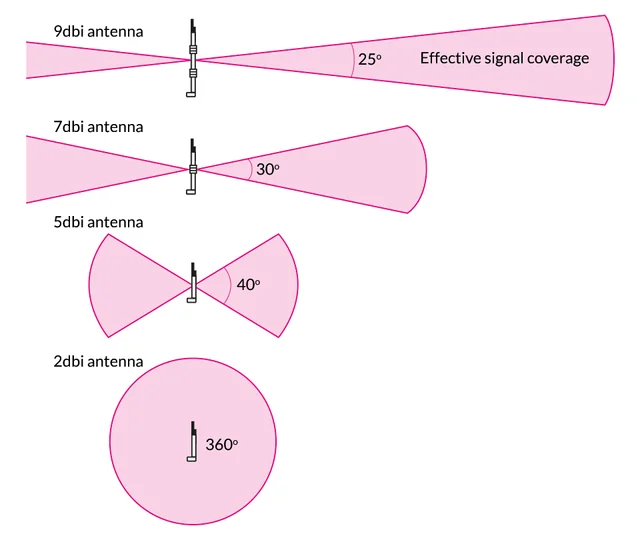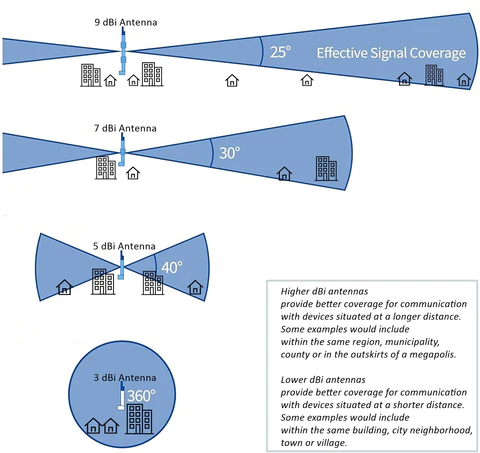Error of compiling for the Ai thinker esp32-cam
-
Morning everybody
I am working on an object detection since 2 weeks.i have started the project by a testing object using edge impulse to creat the library based on this object but when i compile the code i have an error
That's the code:#include <final_inferencing.h> #include "edge-impulse-sdk/dsp/image/image.hpp" #include "esp_camera.h" //#define CAMERA_MODEL_ESP_EYE // Has PSRAM #define CAMERA_MODEL_AI_THINKER // Has PSRAM #if defined(CAMERA_MODEL_ESP_EYE) #define PWDN_GPIO_NUM -1 #define RESET_GPIO_NUM -1 #define XCLK_GPIO_NUM 4 #define SIOD_GPIO_NUM 18 #define SIOC_GPIO_NUM 23 #define Y9_GPIO_NUM 36 #define Y8_GPIO_NUM 37 #define Y7_GPIO_NUM 38 #define Y6_GPIO_NUM 39 #define Y5_GPIO_NUM 35 #define Y4_GPIO_NUM 14 #define Y3_GPIO_NUM 13 #define Y2_GPIO_NUM 34 #define VSYNC_GPIO_NUM 5 #define HREF_GPIO_NUM 27 #define PCLK_GPIO_NUM 25 #elif defined(CAMERA_MODEL_AI_THINKER) #define PWDN_GPIO_NUM 32 #define RESET_GPIO_NUM -1 #define XCLK_GPIO_NUM 0 #define SIOD_GPIO_NUM 26 #define SIOC_GPIO_NUM 27 #define Y9_GPIO_NUM 35 #define Y8_GPIO_NUM 34 #define Y7_GPIO_NUM 39 #define Y6_GPIO_NUM 36 #define Y5_GPIO_NUM 21 #define Y4_GPIO_NUM 19 #define Y3_GPIO_NUM 18 #define Y2_GPIO_NUM 5 #define VSYNC_GPIO_NUM 25 #define HREF_GPIO_NUM 23 #define PCLK_GPIO_NUM 22 #else #error "Camera model not selected" #endif #define EI_CAMERA_RAW_FRAME_BUFFER_COLS 320 #define EI_CAMERA_RAW_FRAME_BUFFER_ROWS 240 #define EI_CAMERA_FRAME_BYTE_SIZE 3 static bool debug_nn = false; static bool is_initialised = false; uint8_t *snapshot_buf; static camera_config_t camera_config = { .pin_pwdn = PWDN_GPIO_NUM, .pin_reset = RESET_GPIO_NUM, .pin_xclk = XCLK_GPIO_NUM, .pin_sscb_sda = SIOD_GPIO_NUM, .pin_sscb_scl = SIOC_GPIO_NUM, .pin_d7 = Y9_GPIO_NUM, .pin_d6 = Y8_GPIO_NUM, .pin_d5 = Y7_GPIO_NUM, .pin_d4 = Y6_GPIO_NUM, .pin_d3 = Y5_GPIO_NUM, .pin_d2 = Y4_GPIO_NUM, .pin_d1 = Y3_GPIO_NUM, .pin_d0 = Y2_GPIO_NUM, .pin_vsync = VSYNC_GPIO_NUM, .pin_href = HREF_GPIO_NUM, .pin_pclk = PCLK_GPIO_NUM, .xclk_freq_hz = 20000000, .ledc_timer = LEDC_TIMER_0, .ledc_channel = LEDC_CHANNEL_0, .pixel_format = PIXFORMAT_JPEG, .frame_size = FRAMESIZE_QVGA, .jpeg_quality = 12, .fb_count = 1, .fb_location = CAMERA_FB_IN_PSRAM, .grab_mode = CAMERA_GRAB_WHEN_EMPTY, }; bool ei_camera_init(void); void ei_camera_deinit(void); bool ei_camera_capture(uint32_t img_width, uint32_t img_height, uint8_t *out_buf) ; void setup() { Serial.begin(115200); while (!Serial); Serial.println("Edge Impulse Inferencing Demo"); if (ei_camera_init() == false) { ei_printf("Failed to initialize Camera!\r\n"); } else { ei_printf("Camera initialized\r\n"); } ei_printf("\nStarting continious inference in 2 seconds...\n"); ei_sleep(2000); } void loop() { if (ei_sleep(5) != EI_IMPULSE_OK) { return; } snapshot_buf = (uint8_t*)malloc(EI_CAMERA_RAW_FRAME_BUFFER_COLS * EI_CAMERA_RAW_FRAME_BUFFER_ROWS * EI_CAMERA_FRAME_BYTE_SIZE); if(snapshot_buf == nullptr) { ei_printf("ERR: Failed to allocate snapshot buffer!\n"); return; } ei::signal_t signal; signal.total_length = EI_CLASSIFIER_INPUT_WIDTH * EI_CLASSIFIER_INPUT_HEIGHT; signal.get_data = &ei_camera_get_data; if (ei_camera_capture((size_t)EI_CLASSIFIER_INPUT_WIDTH, (size_t)EI_CLASSIFIER_INPUT_HEIGHT, snapshot_buf) == false) { ei_printf("Failed to capture image\r\n"); free(snapshot_buf); return; } ei_impulse_result_t result = { 0 }; EI_IMPULSE_ERROR err = run_classifier(&signal, &result, debug_nn); if (err != EI_IMPULSE_OK) { ei_printf("ERR: Failed to run classifier (%d)\n", err); return; } ei_printf("Predictions (DSP: %d ms., Classification: %d ms., Anomaly: %d ms.): \n", result.timing.dsp, result.timing.classification, result.timing.anomaly); #if EI_CLASSIFIER_OBJECT_DETECTION == 1 bool bb_found = result.bounding_boxes[0].value > 0; for (size_t ix = 0; ix < result.bounding_boxes_count; ix++) { auto bb = result.bounding_boxes[ix]; if (bb.value == 0) { continue; } ei_printf(" %s (%f) [ x: %u, y: %u, width: %u, height: %u ]\n", bb.label, bb.value, bb.x, bb.y, bb.width, bb.height); } if (!bb_found) { ei_printf(" No objects found\n"); } #else for (size_t ix = 0; ix < EI_CLASSIFIER_LABEL_COUNT; ix++) { ei_printf(" %s: %.5f\n", result.classification[ix].label, result.classification[ix].value); } #endif #if EI_CLASSIFIER_HAS_ANOMALY == 1 ei_printf(" anomaly score: %.3f\n", result.anomaly); #endif free(snapshot_buf); } /** * @brief Setup image sensor & start streaming * * @retval false if initialisation failed */ bool ei_camera_init(void) { if (is_initialised) return true; #if defined(CAMERA_MODEL_ESP_EYE) pinMode(13, INPUT_PULLUP); pinMode(14, INPUT_PULLUP); #endif esp_err_t err = esp_camera_init(&camera_config); if (err != ESP_OK) { Serial.printf("Camera init failed with error 0x%x\n", err); return false; } sensor_t * s = esp_camera_sensor_get(); if (s->id.PID == OV3660_PID) { s->set_vflip(s, 1); // flip it back s->set_brightness(s, 1); // up the brightness just a bit s->set_saturation(s, 0); // lower the saturation } #if defined(CAMERA_MODEL_M5STACK_WIDE) s->set_vflip(s, 1); s->set_hmirror(s, 1); #elif defined(CAMERA_MODEL_ESP_EYE) s->set_vflip(s, 1); s->set_hmirror(s, 1); s->set_awb_gain(s, 1); #endif is_initialised = true; return true; } void ei_camera_deinit(void) { //deinitialize the camera esp_err_t err = esp_camera_deinit(); if (err != ESP_OK) { ei_printf("Camera deinit failed\n"); return; } is_initialised = false; return; } bool ei_camera_capture(uint32_t img_width, uint32_t img_height, uint8_t *out_buf) { bool do_resize = false; if (!is_initialised) { ei_printf("ERR: Camera is not initialized\r\n"); return false; } camera_fb_t *fb = esp_camera_fb_get(); if (!fb) { ei_printf("Camera capture failed\n"); return false; } bool converted = fmt2rgb888(fb->buf, fb->len, PIXFORMAT_JPEG, snapshot_buf); esp_camera_fb_return(fb); if(!converted){ ei_printf("Conversion failed\n"); return false; } if ((img_width != EI_CAMERA_RAW_FRAME_BUFFER_COLS) || (img_height != EI_CAMERA_RAW_FRAME_BUFFER_ROWS)) { do_resize = true; } if (do_resize) { ei::image::processing::crop_and_interpolate_rgb888( out_buf, EI_CAMERA_RAW_FRAME_BUFFER_COLS, EI_CAMERA_RAW_FRAME_BUFFER_ROWS, out_buf, img_width, img_height); } return true; } static int ei_camera_get_data(size_t offset, size_t length, float *out_ptr) { // we already have a RGB888 buffer, so recalculate offset into pixel index size_t pixel_ix = offset * 3; size_t pixels_left = length; size_t out_ptr_ix = 0; while (pixels_left != 0) { out_ptr[out_ptr_ix] = (snapshot_buf[pixel_ix + 2] << 16) + (snapshot_buf[pixel_ix + 1] << 8) + snapshot_buf[pixel_ix]; out_ptr_ix++; pixel_ix+=3; pixels_left--; } return 0; } #if !defined(EI_CLASSIFIER_SENSOR) || EI_CLASSIFIER_SENSOR != EI_CLASSIFIER_SENSOR_CAMERA #error "Invalid model for current sensor" #endifend that is the error: fork/exec C:\Users\NGALEU JNR\AppData\Local\Arduino15\packages\esp32\tools\xtensa-esp32-elf-gcc\esp-2021r2-patch5-8.4.0/bin/xtensa-esp32-elf-g++.exe: Nom de fichier ou extension trop long. Erreur de compilation pour la carte AI Thinker ESP32-CAMplease i need help to fix it
thanks -
@juniot237 This is a common error with Windows when the path name is too long. Can you try this same code with Linux and see if it's working?
-
This also happened to me when I was given a task from my company, So what I can recommend is:
Ensure that the correct board, "AI Thinker ESP32-CAM," is selected in the Tools menu of your Arduino IDE.
If the board is not listed, you may need to install it through the Board Manager. Search for "ESP32" and install the latest version.
Ensure that necessary libraries like ESP32-CAM, WiFi, and HTTPClient are installed. You can install them through the Library Manager.Carefully check your code for typos, missing semicolons, or incorrect syntax.
Verify that you're using the correct function names and parameters.

